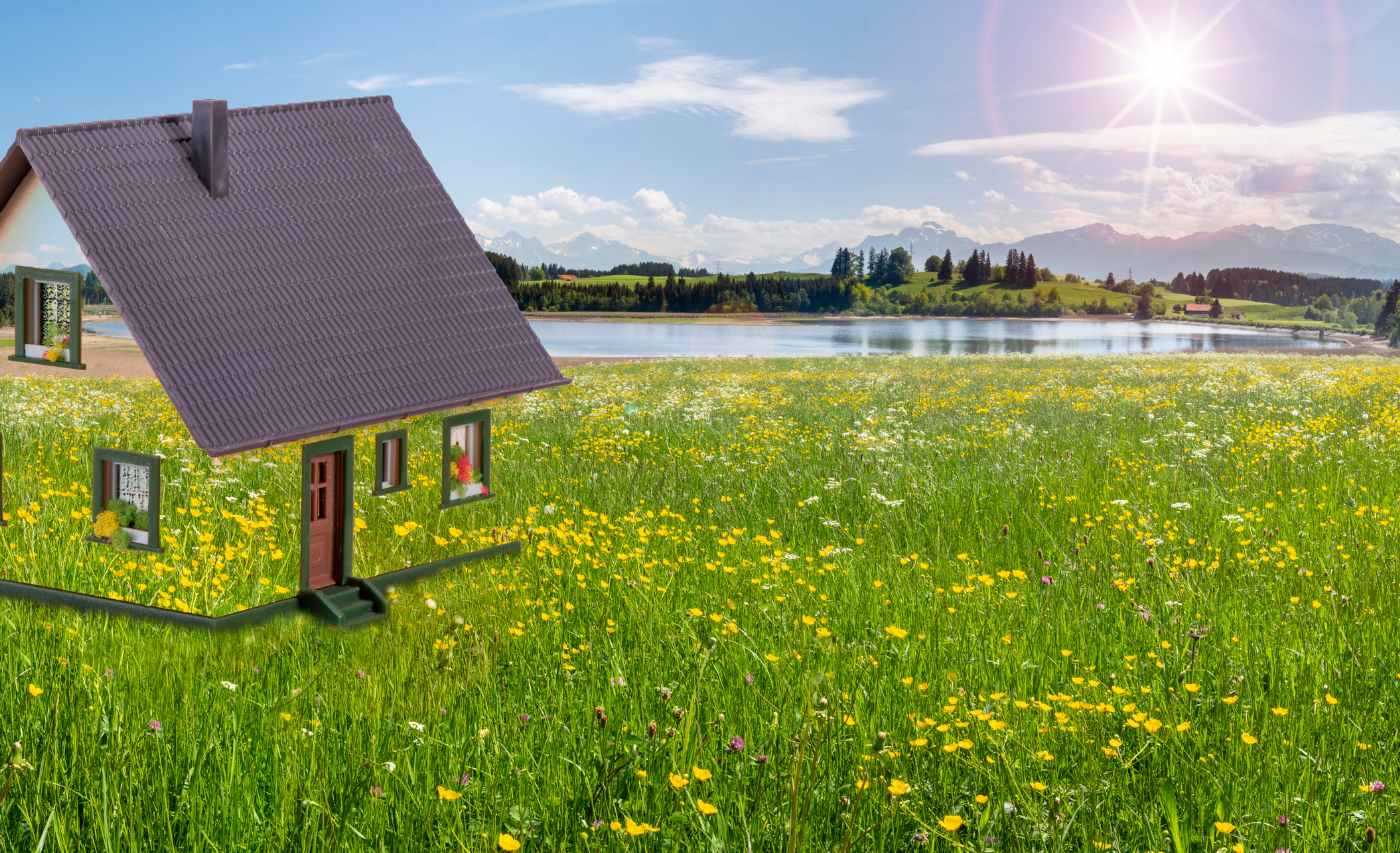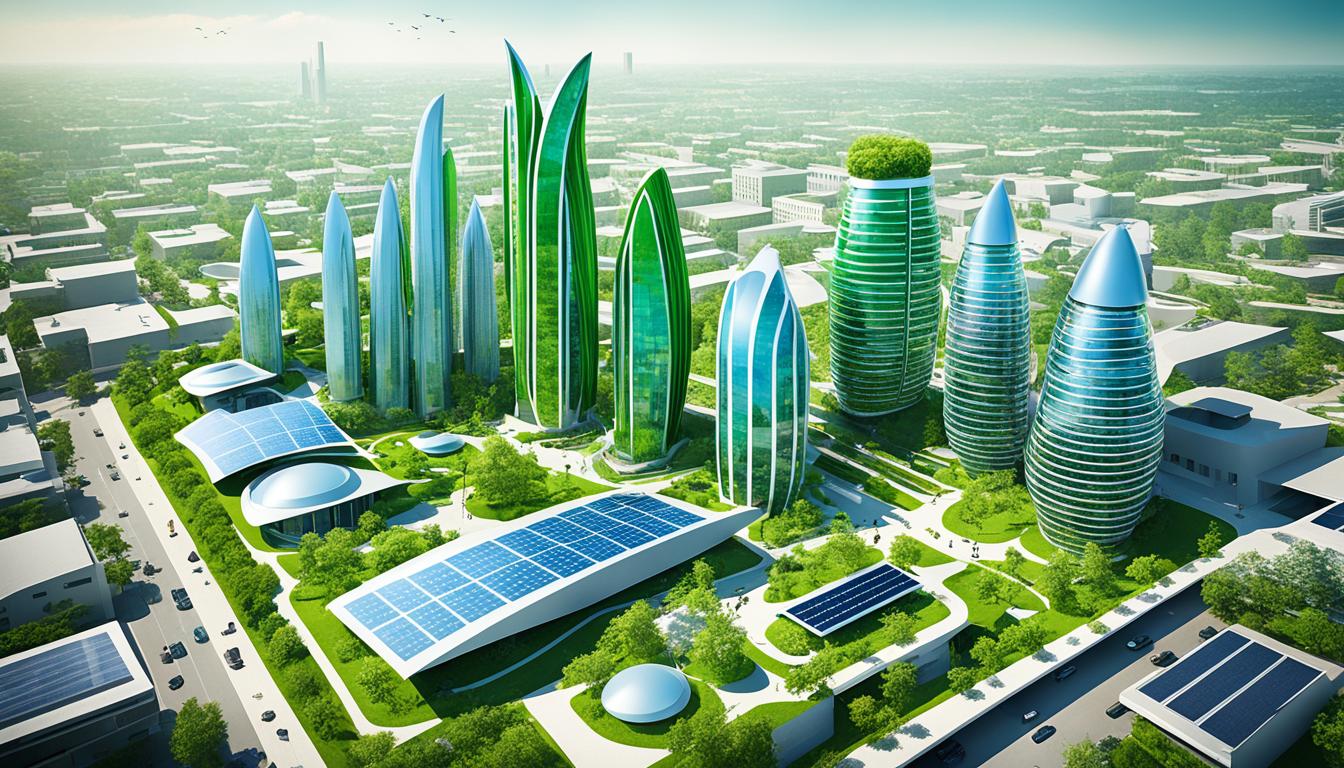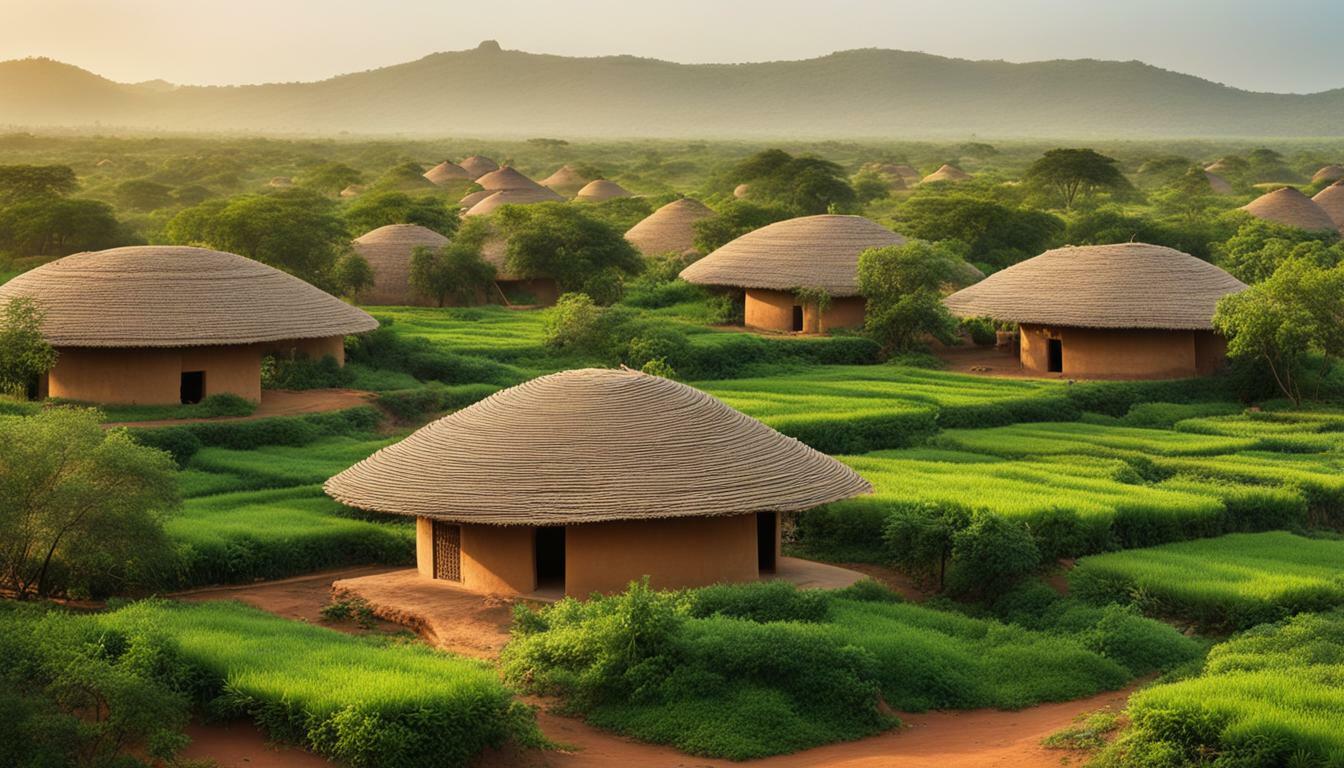Embracing Azerbaijan Green Building for a Sustainable Future
As the global focus on sustainability and environmental conservation grows, countries around the world are making efforts to embrace green building practices to ensure a sustainable future. Azerbaijan, a nation located at the crossroads of Eastern Europe and Western Asia, is no exception. In recent years, the country has been actively promoting and implementing green building initiatives to reduce its carbon footprint and conserve natural resources. This article explores the various aspects of Azerbaijan’s green building movement and highlights the steps taken towards achieving a sustainable future.
Key Takeaways:
- Azerbaijan is committed to promoting green building practices for a more sustainable future.
- The government has established the State Agency on Alternative and Renewable Energy Sources to coordinate renewable energy projects, including those related to green building.
- Azerbaijan encourages the use of sustainable building materials such as locally sourced, recycled, and low VOC products.
- The country has adopted energy performance standards and encourages the use of renewable energy sources in buildings.
- Azerbaijan focuses on raising public awareness and providing education on eco-friendly practices through workshops, seminars, and training programs for construction professionals and the public.
Government initiatives have played a significant role in promoting green building practices in Azerbaijan. The State Agency on Alternative and Renewable Energy Sources was established to coordinate and monitor the country’s renewable energy projects, including those related to green building. The government has also established building codes and regulations that enforce energy performance standards, ensuring that new constructions meet specific energy-saving criteria. Renewable energy sources such as solar panels and wind turbines have been integrated into architectural designs to harness natural resources and generate clean electricity, reducing the buildings’ carbon footprints and contributing to the overall energy sustainability of Azerbaijan.
Another crucial aspect of green building is the use of sustainable materials that minimize environmental impact. Azerbaijan has taken measures to encourage the adoption of such materials in construction projects. The government provides incentives to builders and developers who choose sustainable materials, such as recycled or locally sourced materials, low VOC products, and energy-efficient appliances. Further partnerships with local suppliers ensure a steady availability of eco-friendly building materials.
To promote the concept of green building and sustainability, Azerbaijan focuses on raising public awareness and providing education on eco-friendly practices. The State Agency on Alternative and Renewable Energy Sources conducts workshops, seminars, and training programs for construction professionals and the public to disseminate knowledge about green building techniques and its benefits. The government has also collaborated with educational institutions to incorporate sustainable building concepts into their curriculum, ensuring that future professionals are equipped with the necessary knowledge and skills to contribute to sustainable development.
Overall, Azerbaijan’s green building movement exemplifies the country’s commitment to a sustainable future. The government’s initiatives, promotion of sustainable building materials, energy efficiency measures, and public awareness campaigns have all played significant roles in promoting green building practices. By embracing green building, Azerbaijan seeks to reduce its environmental impact, conserve resources, and create a healthier and more sustainable built environment.
Government Initiatives in Azerbaijan
The Azerbaijani government has shown strong commitment towards promoting green building practices. In 2011, the State Agency on Alternative and Renewable Energy Sources (SAARES) was established to coordinate and monitor the country’s renewable energy projects, including those related to green building. The agency has facilitated the development of several energy-efficient buildings and is actively involved in raising awareness about sustainable construction techniques.
One notable project is the Green Building Demonstration and Information Center, established in Baku, the capital city of Azerbaijan. The center serves as a hub for promoting green building technologies and materials, providing valuable resources and training to architects, engineers, and construction professionals. It showcases various sustainable building designs and features, inspiring professionals and the general public to adopt similar eco-friendly approaches.
Green Building Certifications
The government of Azerbaijan has also taken steps to encourage green building certifications to promote sustainable urban development. The Green Building Council Azerbaijan (GBCA), a non-profit organization, was established to facilitate the certification of buildings based on their environmental performance. The GBCA awards LEED (Leadership in Energy and Environmental Design) certification to buildings that meet stringent environmental standards. This initiative encourages the use of eco-friendly infrastructure and materials and promotes sustainable urban development across the country.
Sustainable Building Materials in Azerbaijan
A crucial aspect of green building is the use of sustainable materials that minimize environmental impact. Azerbaijan has made significant strides in promoting the use of eco-conscious building practices and materials.
| Materials | Benefits |
|---|---|
| Recycled materials | Reduced demand for new materials and waste reduction |
| Low volatile organic compound (VOC) products | Improved indoor air quality and reduced health risks |
| Locally sourced materials | Reduced transportation emissions and support for local businesses |
Local authorities have provided incentives to builders and developers who choose sustainable materials. Furthermore, the government has established partnerships with local suppliers to ensure a steady availability of eco-friendly building materials. These efforts aim to reduce dependence on imported materials and promote the use of sustainable alternatives.
The State Agency on Alternative and Renewable Energy Sources has collaborated with manufacturers to promote the production of energy-efficient windows, insulation materials, and solar panels. These initiatives have helped to reduce the environmental impact of construction projects in Azerbaijan.

By promoting the use of green construction materials, Azerbaijan is taking steps towards a more sustainable built environment. These materials are not only eco-friendly but also cost-effective and durable, making them a viable alternative to traditional construction materials.
Energy Efficiency in Azerbaijan’s Green Buildings
One of the primary objectives of green building is to improve energy efficiency and reduce carbon emissions. Azerbaijan has recognized the importance of energy-efficient buildings and has implemented several measures to achieve this goal. The country has adopted building codes and regulations that enforce energy performance standards, ensuring that new constructions meet specific energy-saving criteria.
Moreover, the government has encouraged the use of renewable energy sources in buildings. Solar panels have been installed on rooftops, and wind turbines have been integrated into architectural designs to harness natural resources and generate clean electricity. These initiatives not only reduce the buildings’ carbon footprints but also contribute to the overall energy sustainability of Azerbaijan.
To promote the concept of energy efficiency in green buildings, Azerbaijan is leveraging renewable energy solutions such as geothermal and biomass energy. These solutions are integrated within the design of the building and support the overall energy-efficient operations of the structure. Azerbaijan has a huge potential for renewable energy usage to reduce its carbon footprint. It is also important to note that energy-efficient designs often have long-term cost benefits in addition to environmental benefits.
The government’s efforts to promote green building practices can also be seen in the adoption of energy-efficient lighting systems and HVAC systems in government buildings. Private companies and building owners have also taken up the initiative with retrofitting existing structures to meet energy-efficient standards. This can be seen in the use of energy-efficient equipment, such as low-flush toilets and water-efficient taps and showers, which significantly reduce water consumption and its associated costs.
Integrating energy-efficient systems and renewable energy solutions within the built environment plays a significant role in reducing carbon emissions and conserving resources. It also helps create a sustainable and healthy living and working environment for people in Azerbaijan.

Public Awareness and Education on Green Building in Azerbaijan
To promote the concept of green building and sustainability, Azerbaijan has focused on raising public awareness and providing education on eco-friendly practices. The State Agency on Alternative and Renewable Energy Sources conducts workshops, seminars, and training programs for construction professionals and the public to disseminate knowledge about green building techniques and its benefits.
Additionally, the government has collaborated with educational institutions to incorporate sustainable building concepts into their curriculum. Architecture and engineering universities in Azerbaijan now offer courses on green building design, energy-efficient construction techniques, and renewable energy integration. These initiatives ensure that future professionals are equipped with the necessary knowledge and skills to contribute to sustainable development.
The government has also encouraged green building certifications and sustainable urban development. The National Certification System for Green Buildings was established to certify buildings that meet specific environmental and sustainability criteria. Furthermore, the State Committee for Town Planning and Architecture has developed guidelines for sustainable urban development, encouraging the use of eco-friendly infrastructure, public transportation, and green spaces.
By promoting public awareness and education, Azerbaijan is creating a culture of sustainability and motivating individuals to adopt eco-friendly practices in their personal and professional lives. These efforts are crucial in achieving a greener and more sustainable future for the country and the planet.

Conclusion: Azerbaijan Green Building for a Sustainable Future
Azerbaijan’s green building movement exemplifies the country’s commitment to a sustainable future. The government has implemented initiatives to promote sustainable urban development, including green building certifications and eco-friendly infrastructure. The use of green construction materials and eco-conscious building practices has also been encouraged to reduce the environmental impact of construction projects. Energy-efficient designs and renewable energy solutions have been adopted to improve the overall energy sustainability of Azerbaijan’s buildings.
To ensure public awareness and education on green building practices, the government has conducted workshops, seminars, and training programs for construction professionals and the public. Educational institutions have also incorporated sustainable building concepts into their curriculum.
By embracing green building, Azerbaijan seeks to reduce its environmental impact, conserve resources, and create a healthier and more sustainable built environment. As the movement continues to gain momentum, Azerbaijan is well on its way to achieving its goal of a greener and more sustainable future.
FAQ
Q: What is Azerbaijan’s approach to green building?
A: Azerbaijan is actively promoting and implementing green building practices to reduce its carbon footprint and conserve natural resources.
Q: What government initiatives are in place to support green building in Azerbaijan?
A: The Azerbaijani government has established the State Agency on Alternative and Renewable Energy Sources (SAARES) to coordinate and monitor renewable energy projects, including those related to green building. They have also established the Green Building Demonstration and Information Center in Baku to promote green building technologies and provide training and resources.
Q: How does Azerbaijan encourage the use of sustainable building materials?
A: Azerbaijan provides incentives to builders and developers who choose sustainable materials, such as recycled or locally sourced materials, low volatile organic compound (VOC) products, and energy-efficient appliances. The government has also partnered with local suppliers to ensure a steady availability of eco-friendly building materials.
Q: What measures has Azerbaijan taken to improve energy efficiency in buildings?
A: Azerbaijan has adopted building codes and regulations that enforce energy performance standards for new constructions. The government also encourages the use of renewable energy sources in buildings, such as solar panels and wind turbines.
Q: What is being done to raise public awareness and education on green building in Azerbaijan?
A: The State Agency on Alternative and Renewable Energy Sources conducts workshops, seminars, and training programs to educate construction professionals and the public about green building techniques. Educational institutions in Azerbaijan have also incorporated sustainable building concepts into their curriculum.








